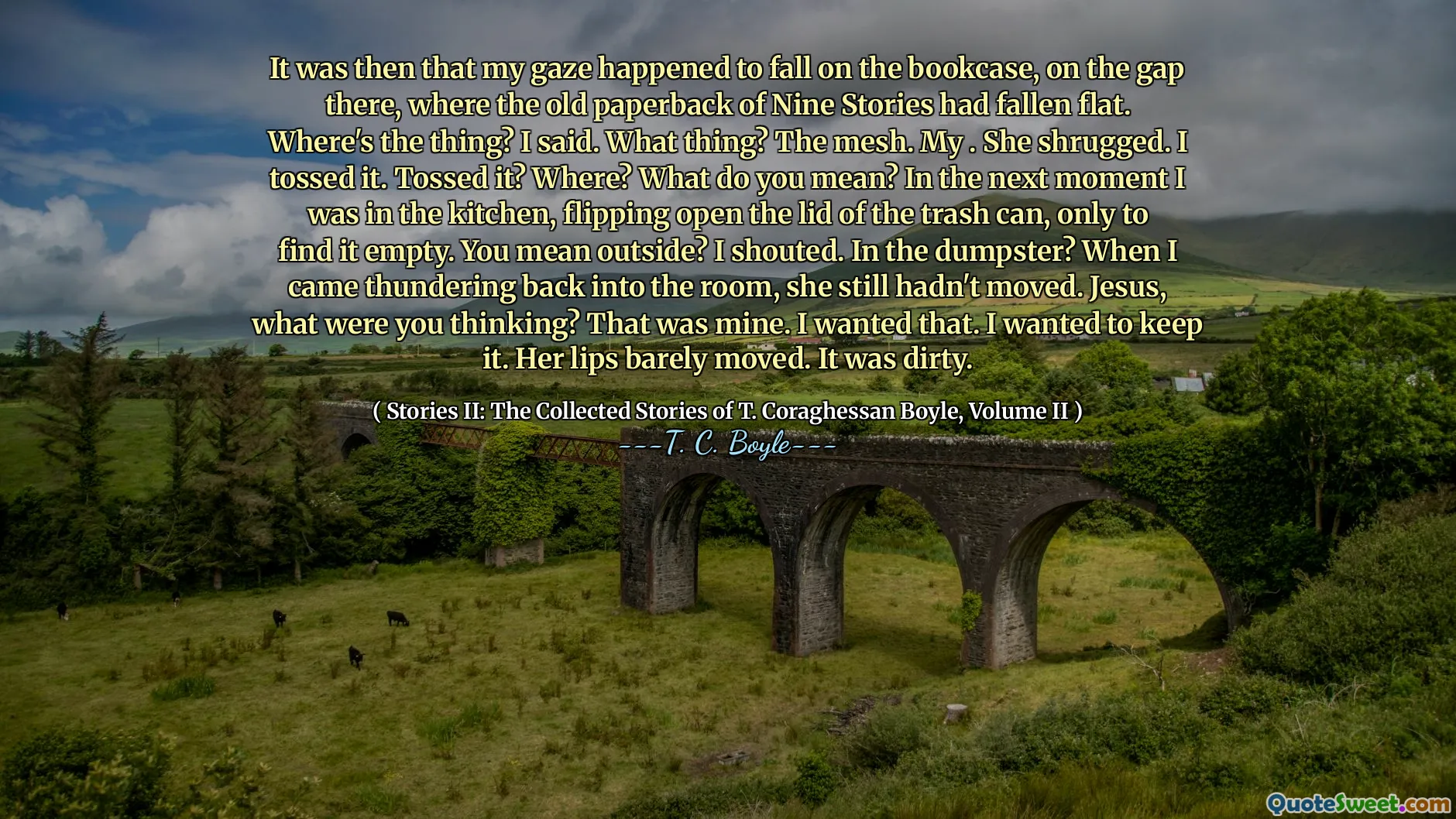
那时,我的目光恰好落在书柜上,在那里的差距上,那里的九个故事的旧平装本平坦。那东西在哪里?我说。什么事?网格。我的 。她耸了耸肩。我扔了它。扔了吗?在哪里?你是什么意思?在下一刻,我在厨房里,翻转垃圾桶的盖子,却发现它是空的。你是说外面?我大喊。在垃圾箱里?当我回到房间里时,她仍然没有动。耶稣,你在想什么?那是我的。我想要那个。我想保留它。她的嘴唇几乎没有动。这很脏。
(It was then that my gaze happened to fall on the bookcase, on the gap there, where the old paperback of Nine Stories had fallen flat. Where's the thing? I said. What thing? The mesh. My . She shrugged. I tossed it. Tossed it? Where? What do you mean? In the next moment I was in the kitchen, flipping open the lid of the trash can, only to find it empty. You mean outside? I shouted. In the dumpster? When I came thundering back into the room, she still hadn't moved. Jesus, what were you thinking? That was mine. I wanted that. I wanted to keep it. Her lips barely moved. It was dirty.)
